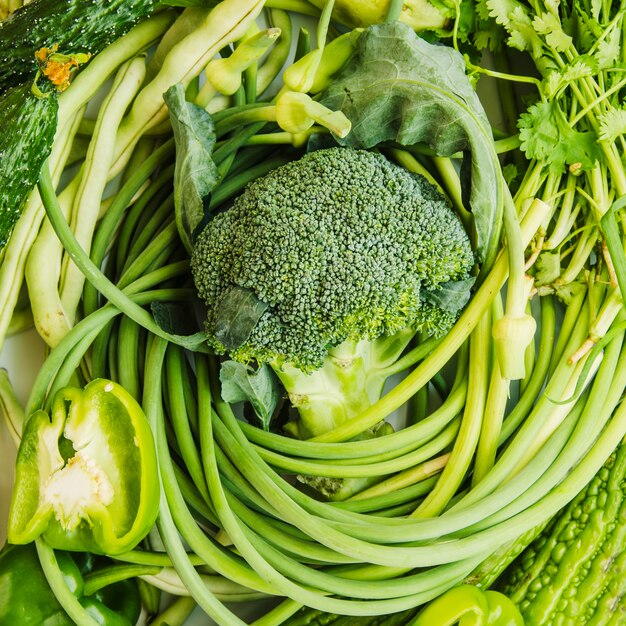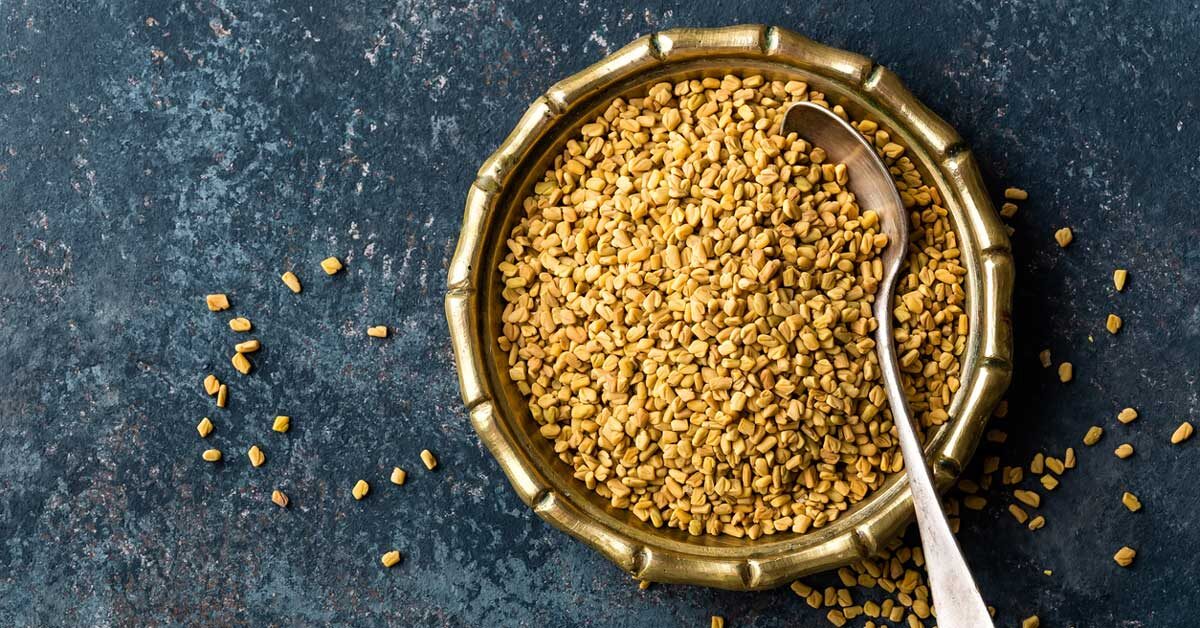Modern medicine focuses on finding effective cancer preventive and treatment methods. Bitter foods have been studied more recently, prompting researchers to speculate about their cancer-prevention potential. Food bitterness is disliked by many. However, a recent study suggests that bitterness may have uses beyond taste.
Unchecked cell proliferation and invasion make cancer a problematic disease for doctors. Conventional treatments work well for some tumors. These techniques have limitations and adverse effects, encouraging scientists to find other ways to prevent and treat this deadly sickness.
Bitter foods, generally considered acquired tastes, are drawing industry professionals and health enthusiasts due to their ability to alter cancer function.
Bioactive characteristics of bitter compounds in numerous plant species are being studied. Many substances contain alkaloids, flavonoids, glucosinolates, and terpenes. Empirically shown ability to inhibit cancer-related cellular processes. Thus, researchers are investigating whether bitter foods reduce cancer risk.
This article investigates bitter foods’ cancer-prevention potential through laboratory tests and lifestyle changes. Many culinary materials can be used to study bitterness’ cancer-fighting potential.
Cruciferous plants like broccoli and Kale, strong in bitter glucosinolates chemicals, and bitter melon, which has several bioactive characteristics, are sources. The effects of these chemicals on inflammation, cellular signaling, oxidative stress, and epigenetic modifications may lead to new cancer prevention and treatment methods.
This article explores bitter foods and their potential to revolutionize cancer prevention.
What are Bitter Foods?
Bitter foods have a peculiar flavor that leaves the mouth dry and harsh. Taste receptors on the tongue that detect bitter flavors engage during this gustatory feeling. Bitterness’s strong sensory qualities make it unpleasant for most people. However, it is essential to human sensory perception since it warns us of potentially dangerous environmental objects.
A variety of plant-based foods include bitter compounds, making them bitter meals. Alkaloids, flavonoids, terpenes, and glucosinolates come in many forms. These chemical substances cause bitterness and are bioactive. These chemicals improve digestion, appetite, biological activity, and cancer risk, according to numerous studies.
Bitter foods include broccoli, arugula, Brussels sprouts, coffee, bitter melon, and dandelion greens. Bitter foods are delicious and can be used to assess their health advantages.
Bitter Foods That Help Prevent Cancer
Due to their high bioactive component content, bitter foods have been studied for cancer prevention. Despite ongoing studies and procedure modifications, certain bitter foods have received interest in cancer prevention.
Broccoli:
Due to its high glucosinolate concentration, broccoli is known for its anti-cancer qualities. These compounds decompose into sulforaphane, a beneficial substance. Sulforaphane inhibits cancer cell multiplication, according to extensive studies. Sulforaphane increases detoxifying enzymes, reducing carcinogenic carcinogen damage.
In addition, inflammation is reduced, and apoptosis, which kills cancer cells, is promoted. Sulforaphane also inhibits tumor growth by blocking angiogenesis and metastasis. Broccoli’s intricate chemical interactions make it a good cancer preventive and therapy food.
Kale:
The cruciferous nature of Kale gives it bioactive elements that protect against cancer. Kale produces strong anti-cancer chemical sulforaphane when chewed or cooked. Sulforaphane induces detoxification enzymes, removing carcinogens.
This intervention reduces inflammation and boosts antioxidant defenses, reducing DNA damage and cellular mutation. The stimulation of apoptosis helps cancer cells die at the right time. When prepared differently, Kale becomes a nutritious meal that prevents and treats various cancers.
Bitter Melon:
Bitter melon is used in traditional medicine and cooking and may prevent cancer. Charantic, momordicin, and lectins in bitter melon make it anti-cancer. These drugs limit cell proliferation, kill cells, and disrupt tumor growth mechanisms.
Bitter melon’s therapeutic properties reduce inflammation, oxidative stress, and angiogenesis, giving it flavor. Bitter melon is called “bitter gourd.” According to studies, bitter melon may slow cancer growth by affecting specific cellular pathways. This natural resource is a promising candidate for creative and comprehensive cancer prevention methods.
Turmeric:
Curcumin, a powerful polyphenol in turmeric, may prevent cancer. Curcumin’s antioxidant and anti-inflammatory effects boost its anti-cancer capabilities. It can stop inflammation, decrease tumor cell growth, cause apoptosis, and disrupt cancer-causing signaling pathways.
Curcumin modulates gene expression and inhibits angiogenesis, providing additional benefits. Curcumin, a turmeric ingredient, may prevent cancer naturally.
Grapefruit:
Naringenin, a flavonoid component linked to cancer prevention, is found in grapefruit, a citrus fruit type. Naringenin’s antioxidant properties prevent free radical damage to cellular structures, slowing carcinogenesis. This chemical inhibits cancer cell growth and division.
The ability of naringenin to induce apoptosis, which kills damaged cells, helps prevent cancer. It also affects signaling cascades that regulate inflammatory responses and cellular proliferation, making it anti-cancer. Grapefruit can fight against cancer by using naringenin’s significant anti-cancer properties.
Dandelion Greens:
The anti-cancer capabilities of weed dandelion greens are surprising. These molecules contain many bitter sesquiterpene lactones, which are antioxidants and anti-inflammatory. These traits may slow cancer growth. According to empirical studies, dandelion greens can inhibit cellular proliferation, induce apoptosis, and prevent angiogenesis, which supports malignant growth.
Bitter veggies’ detoxifying characteristics help the body eliminate dangerous toxins. Dandelion greens contain bitter compounds that may prevent cancer and improve health.
Artichoke:
The culinary versatility of artichoke is well known. Bitter chemicals like chloropicrin and caffeoylquinic acid in these plants may prevent cancer. These chemicals have antioxidant and anti-inflammatory characteristics that eliminate free radicals connected to carcinogenesis and reduce inflammation linked to chronic diseases.
The bioactive elements in artichokes are also thought to control the cell cycle, inhibit tumor growth, and trigger apoptosis in malignant cells. Despite current research, artichokes’ particular blend of bitter chemicals promotes a healthy diet and may protect against cancer.
Cabbage:
Cabbage, a cruciferous vegetable, reduces cancer risk. Glucosinolates convert into anti-cancer compounds I3C and sulforaphane during cabbage breakdown. Cabbage is high in glucosinolates. Indole-3-carbinol (I3C) regulates hormonal balance and aids hormone metabolism, potentially preventing hormone-induced malignancies.
Sulforaphane increases detoxification enzymes, inhibiting tumor growth and removing carcinogens. Cabbage antioxidants diminish oxidative stress, a carcinogen. Raw, cooked, or fermented cabbage reduces cancer risk and tastes excellent.
Endive:
Bitter endive, a leafy green vegetable, contains many beneficial components, including sesquiterpene lactones, which may reduce cancer risk. Researchers found that some chemicals could fight inflammation and cancer. Endive’s sesquiterpene lactone inhibits tumor development, kills cancer cells, and alters tumor-promoting signaling pathways.
Endive’s bitter taste may be due to its complex phytochemical content, which may contribute to its health benefits. Adding more endive to a healthy diet may be a tasty way to improve health and lower cancer risk.
Moringa:
Moringa leaves, which taste bitter, contain several beneficial chemical elements, making them a potential cancer prevention tool. In high doses, quercetin and kaempferol prevent oxidative stress and inflammation-induced carcinogenesis.
Light degrades moringa glucosinolates, forming isothiocyanates. Isothiocyanates decrease tumor development, promote apoptosis, and impair malignant cell communication. Moringa’s phytochemicals and nutrients may prevent cancer.
Conclusion
In our complex search for cancer prevention, bitter foods are fascinating. Bitter substances may inhibit cancer’s complicated pathways, according to recent studies. Traditional knowledge and modern science are combined in this study. These foods include bioactive compounds that may slow cancer growth.
The hardiness of broccoli and the perplexing bitterness of melons illustrate this phenomenon. Bitter taste was once considered a culinary novelty, but modern views recognize its potential as health protection due to its impact on taste receptors beyond the tongue.
Bitter foods reduce inflammation, induce apoptosis, and create complex cellular harmonies. We learn that bitter foods have many different effects as we know more. The fight against cancer is like a symphony with many tones.
Also, read: Why It’s Important To Drink Beetroot Juice Every Day




